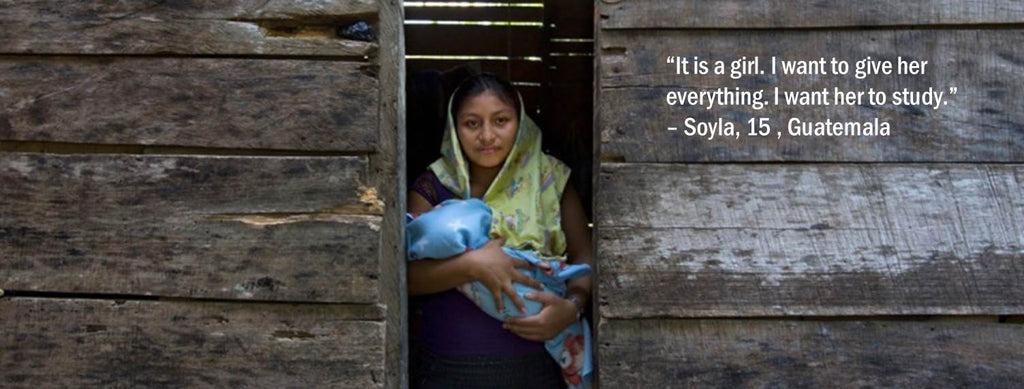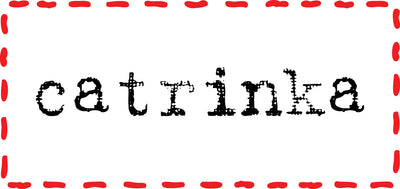The Global Tribe of Mothers
Megan Reilly Cayten, Founder and CEO of Catrinka
I love my mom, and love nothing more in life than being a mom of three little ones, but I have never celebrated Mother’s Day. Among the many truths I inherited from my mother is that Mother’s Day was created by Hallmark to get people to buy things, and the flowers, brunches and spa gift certificates are not what works in our family to show our love and respect for the woman who gave life, and gives of her life every single day. Becoming a mother is the best thing I have ever done, and it gives me a deep sense of purpose, joy, and a constant focus on what is important. While I will happily accept handmade cards and burnt bagels (and really anything my kids create), I don’t need a day on the calendar to feel recognized and loved.
But this year is different. Having and raising my children has made me realize just what was done for me. Thinking about how to impart my core values – empathy, integrity, independence – to them makes me realize the depth and breadth of what my mother taught me. And it makes me think about the global tribe of mothers – the motherhood – who love and feed and inspire and fight for their kids every single moment of every day. I feel connected to them, and proud to celebrate a day that celebrates all of us.

A few years ago I left a full-time job to spend more time with my kids, and on the side started a project to use my love of textiles – inherited from my grandmother, a weaver, and my mother, a folk artist, and indulged through decades of living and working on four continents – to create products that celebrate women’s work and benefit women and girls. That project turned into a company, Catrinka (named for my daughter), dedicated to creating choices for women and girls. Catrinka’s handbags are made fairly by women around the world, in Mexico, India, Afghanistan, and 12 other countries to date. Catrinka invests in women because women reinvest twice as much of their income in their families as men do. Women pay it forward to the next generation, and so as a company Catrinka does too, by investing a share of the proceeds from each product sold in education and life skills mentoring for adolescent girls in the places Catrinka products are made. In two years Catrinka has provided more than 3,000 days of fair work to women, and more than 50,000 days of education for girls
Ceci and Josefa, Nachig, Chiapas. Photo by Ana Paula Fuentes.
Unsurprisingly, most of the women who weave and assemble our products are mothers. Josefa is an indigenous Mayan weaver in Nachig, Chiapas, with 5 children, ranging in age from 5 to 16. Her oldest two are girls, and both left school after 5th grade to work. My hope is that our orders from Josefa for the Ceci Tote, named after her oldest daughter, will help to improve the family’s economic situation so that by the time Claudia, her youngest, faces that decision in just 6 years, it will seem worthwhile for her to go to secondary school and have more choices about what she does with her life than her mother and sisters have today.
Catrinka is my small effort to enable a measure of independence and opportunity for a few hundred women and adolescent girls – and their future children and grandchildren – around the world, so that they can take charge of their own future. While I know and believe that we need global commitments and actions to remove barriers for women and girls, I also know that sometimes those commitments take a long time, and ring hollow for women and girls who face immediate threats and myriad barriers. Providing women and adolescent girls with financial literacy and a way to earn a living arms them with tools they can use today to be independent and gain control over their future.

Photo credit: Stephanie Sinclair, Too Young to Wed
Soyla is an indigenous Mayan girl in Guatemala in the area where we work with girls through our NGO partner, Red de mujeres indigenas Abriendo Oportunidades Aq’ab’al (Redmi). She left school after 5th grade, married at 14, and had her first child, a girl, late last year. She was photographed and interviewed as part of a project by the NGO Too Young to Wed. I have never met her, but I keep her photo on my desk and think about her every day. The heartbreak and the hope in her words, and the fierce love and dedication that this girl – still very much a girl – has for her own little girl, make me grateful to be part of a global tribe of mothers that includes her, and so many others like her, some with more challenges and some with fewer, but all of us dedicated to investing in the future with empathy, faith, and love. My mother is one of them, and to me the supreme example of love and empathy. This Mother’s Day, I am sending her a card to say just that.

